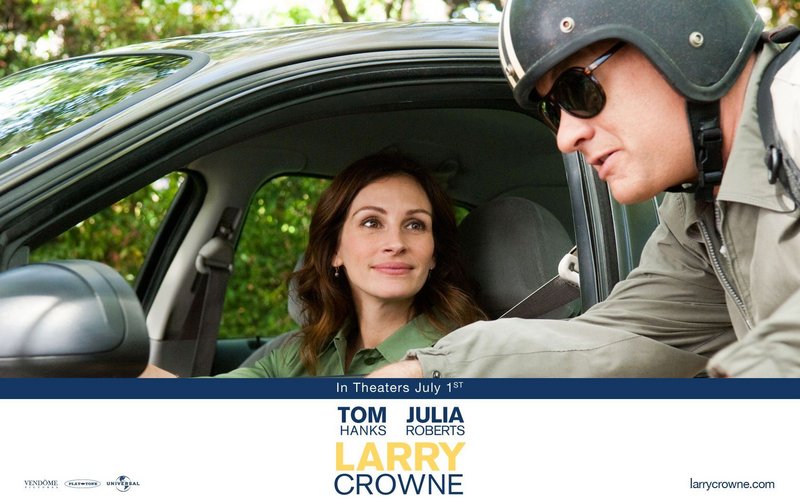ORLANDO, Fla. – “I understand the concept of optimism,” Tom Hanks says. “But I think with me what you get is a lack of cynicism.”
That personal credo is something Hanks has never been shy about bringing to his movies. Whether it is Forrest Gump’s naive faith in people or Chuck Noland’s dogged determination to survive and be rescued in “Cast Away,” Hanks identifies with characters he describes as “one of the faithful.”
“As long as you as an individual … can convince yourself that in order to move forward as best you can you have to be optimistic, you can be described as ‘one of the faithful,’ one of those people who can say, ‘Well, look, something’s going to happen! Let’s just keep trying. Let’s not give up …’
“I tend to think that way. And I think that sort of optimism is worth making a movie about.”
His new film, “Larry Crowne,” opens Friday and gives that optimism a test torn straight from the American zeitgeist. Hanks didn’t see the Great Recession coming, but it unfolded as the film went into production. “Larry Crowne” was “going to be about the American propensity for starting over from scratch,” he says. “The economy sort of caught up with it.”
Hanks co-wrote, directed and stars as a man who went from high school to the Navy to a job in a big-box store, a divorced man whose world might have ended the day he was laid off. Broke, lost and alone, Larry Crowne could easily become Nick Halsey, the newly unemployed alcoholic Will Ferrell plays in “Everything Must Go.”
The two movies show different takes on what happens when people unexpectedly lose their jobs. “Everybody’s going to respond to this (circumstance) in their own individual way,” Hanks says. “Larry Crowne is about as bummed out a human being as one can be when he loses his job. What he is able to enjoy is something that may not be available to everybody. But it’s about the value of being willing to get and willing to give good advice. That’s one of the great possibilities that going to college or going back to a community college offers.”
Hanks attended a California junior college (“for $15 a semester!”) and California State University in Sacramento but didn’t graduate. He worked (hotel bellman, peanut vendor at the Oakland ballpark), studied theater and made his way into show business. In recent years, he has relished the opportunity to play characters who take pride in the details of their work — the FedEx man who crosses his T’s in “Cast Away,” or the home-improvement store staffer who tidies up the parking lot on his way to work in “Larry Crowne.”
“For a lot of us, work is theater,” he says. “We adopt a persona that fits that role. What breaks Larry’s heart the most is not losing his paycheck, but losing that group of people that he gets to be a part of every day.”
In the decades since his arrival as a big box-office star, Hanks has gathered Oscars, acclaim and an Everyman reputation that few in Hollywood rival. He became “The American Actor,” says critic and scholar David Thomason in his authoritative “New Biographical Dictionary of Film.” But “he has become always Tom Hanks, without letting us into that persona.”
Space has been a lifelong “big deal” for Hanks, which is why “From the Earth to the Moon” and “Apollo 13” won’t be his last films on the subject. He has optioned one of his childhood space toys, Major Matt Mason, to turn it into a movie.
“There will always be sailors who go down to the sea in ships, or throw themselves off into the unknown void,” Hanks says. “You cannot look up at the night sky on the Planet Earth and not wonder what it’s like to be up there amongst the stars. And I always look up at the moon and see it as the single most romantic place within the cosmos.
“That is the way I was wired when I was young and growing up. … It hasn’t gone away.”
That lunar love affair is yet another indicator of Hanks’ personal optimism. Sure, he’s turning 55 on July 9. But he hasn’t given up the hope that someday, with whatever version of manned space flight the country moves into in the future, that he might still get to be a real astronaut.
“If they could offer up a way to go to the moon that wouldn’t kill you, I’d sign up. First in line,” he says with a laugh. “Just to see what it looks like.”
Send questions/comments to the editors.


